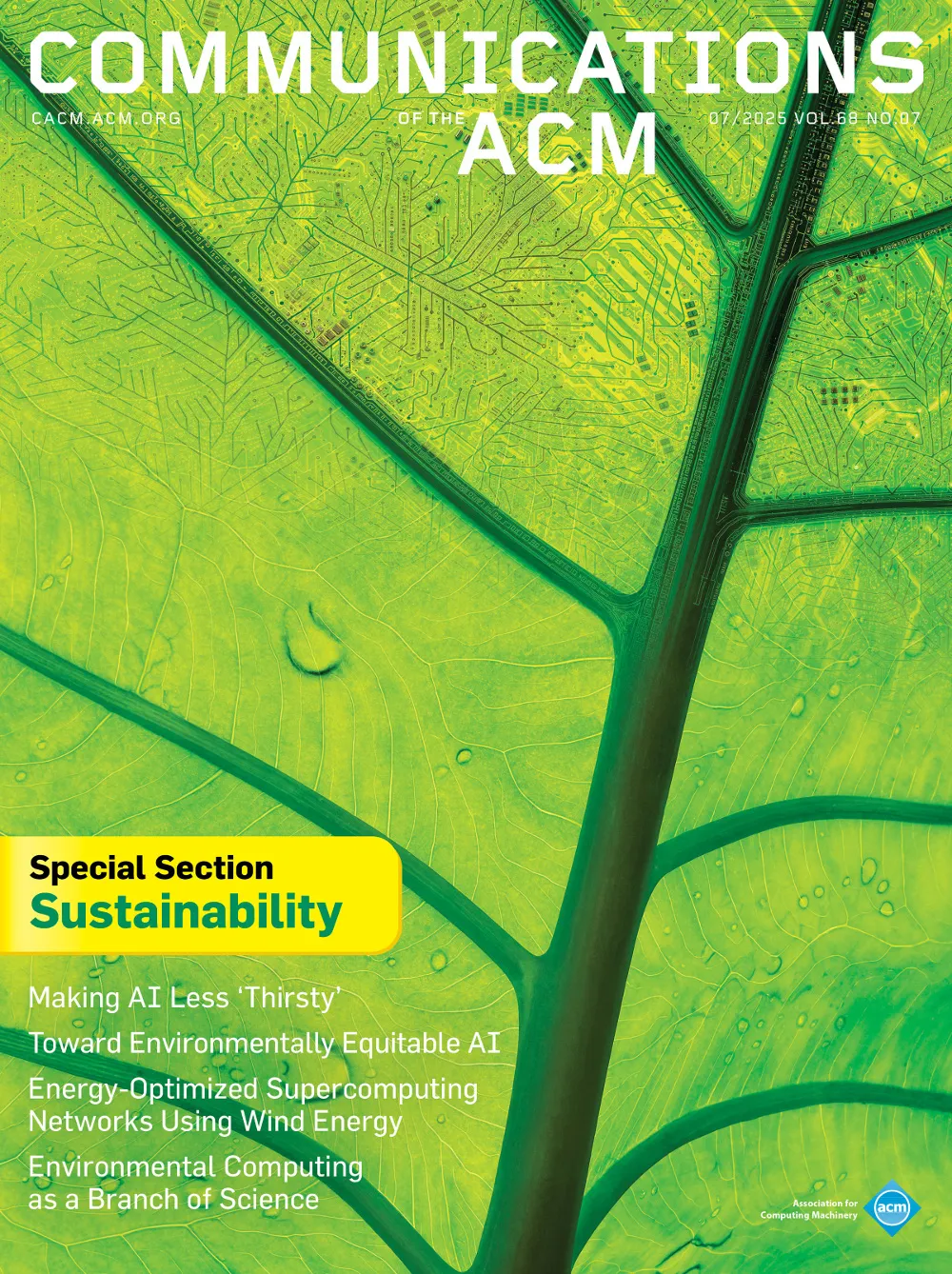I Teach Computer Science, and That Is Not All
I believe the purpose of universities was best expressed in an influential 1940 statement on academic freedom: “Institutions of higher education are conducted for the common good.”

I Teach Computer Science, and That Is Not All
I believe the purpose of universities was best expressed in an influential 1940 statement on academic freedom: “Institutions of higher education are conducted for the common good.”
The Ethical Implications of Online Computer Science Education
Can online computer science programs adequately prepare students for industry demands, especially in fields requiring hands-on problem-solving?
The Emerging Face of Digital Dentistry
Digital technologies could expand treatments and the availability of dental services to undeserved communities.
Advancements in Weather Prediction
The amount and quality of topographical, land use, land cover, coastline, and other data feeding forecasting models are leading to better predictions.
Buckle up, because what’s coming next is unlikely to look like what came before.
DeepSeek Inside: Origins, Technology, and Impact
How a little-known Chinese startup disrupted the GenAI ecosystem.
Beyond the Checkbox: Upgrading the Right to Opt Out
How to make the right to opt out work for everyone.
A consensus is emerging that copyright laws should include human creation requirements.
Generative Artificial Intelligence Policies under the Microscope
CS conferences are increasingly adopting and sharing GenAI policies for authors, and guidelines for reviewers.
Judicial website blocking has several desirable properties in fighting online criminal activities, and could be used safely and effectively in the U.S.
As Government Outsources More IT, Highly Skilled In-House Technologists Are More Essential
Agencies need the ability to examine their own software and data to ensure that policy rules are instantiated correctly, to analyze operations and performance, or to experiment to improve processes.
Welcome: Sustainability and Computing Special Section
Computing has a responsibility to become more environmentally sustainable.
Understanding the Environmental Impact of Generative AI Services
A methodology to assess the environmental impact of Stable Diffusion as an end-to-end service.
It's critical to address AI's water footprint to ensure that it does not exacerbate global water stresses.
Efficiency Is Not Enough: A Critical Perspective of Environmentally Sustainable AI
Systems thinking provides a way to move beyond a focus on efficiency and cultivate a nuanced view of the environmental impact of ML and ways to reduce it.
Toward Environmentally Equitable AI
Environmental equity should be a priority for the management of future AI systems.
Energy-Optimized Supercomputer Networks Using Wind Energy
Harnessing the wind to improve the sustainability of energy-intensive computing.
Empowering Users to Make Sustainability-Forward Decisions for Computing Services
Exploring the intersection of sustainable computer systems and sustainable human-computer interaction.
Full Stack Recycling Approaches for Computing Devices
Full-stack recycling considers computational methods that assist with recycling each layer of an electronic device rather than once at its end-of-life.
Environmental Computing as a Branch of Science
Environmental computing can deepen our understanding of environmental processes and address the challenges of a rapidly changing world.
A Brazilian Perspective on Computing for the Planet’s Sustainability
The Brazilian Computing Society's Digital Technologies for the Environment outlines a vision and principles for a sustainable, technology-driven future.
Continuous Earth Observation of Forest Dynamics and Biodiversity
Efficient approaches to process Earth observation data require scalable computing power and the ability to deal with petabytes of data from distributed and heterogeneous sources.
Defying Moore: Envisioning the Economics of a Semiconductor Revolution through 12nm Specialization
Architectural innovation can make substantial contributions to the economics and efficiency of sustaining Moore’s Law’s cadence of improvements for AI chips.
The Rational Programmer: Investigating Programming Language Pragmatics
The rational-programmer method helps assess whether linguistic features and tools can deliver useful information with software development tasks.
Weighted ballots, abstained votes, and how to make your favored candidate win.